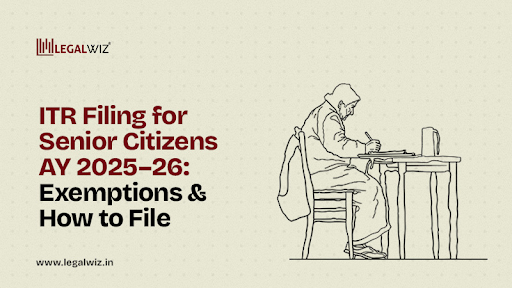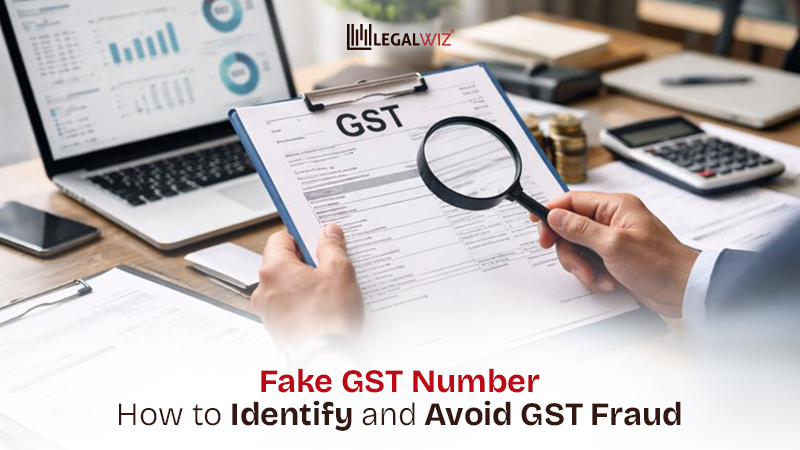ITR Filing for Senior Citizens AY 2025–26: Exemptions & How to File
Congratulations—you’ve officially entered the golden years where wisdom meets freedom! But here’s the catch: even the wisest among us can trip over tax jargon. Luckily, the Income Tax Department sprinkles a little extra sunshine on senior citizens with higher exemption limits, special deductions, and tailor-made benefits.
Filing your ITR isn’t just ticking a legal box—it’s your ticket to saving money, claiming refunds, and dodging those dreaded tax notices. Whether your income flows from pensions, interest on savings, fixed deposits, or rental property, the right exemptions can make all the difference. Super senior citizens (80+) get an even higher basic exemption limit, while deductions under Sections 80D, 80TTB, 80C, and 80G can sweeten the deal further. Skip these, and you might as well be leaving cash on the dining table after Diwali!
And here’s the twist—AY 2025–26 brings some fresh updates. To stay ahead, check out the latest income tax changes: think of them as your personal cheat sheet for smarter savings and a stress-free relationship with the taxman.
Filing your ITR is like a financial health check-up. Done right, it ensures your money works for you—not for penalties or missed refunds. And the best part? Once you crack the code, filing stops feeling like a chore and starts feeling like the little thrill of watching a surprise refund land in your bank account.
Pro Tip: Even if your income seems “too small” or mainly pension-based, filing right ensures you don’t miss out on refunds, exemptions, or that golden peace of mind crafted just for seniors.
1. What is ITR & Why Should Senior Citizens Care?
Filing an Income Tax Return (ITR) might sound like adulting on steroids, but breathe easy—it’s really just a form where you tell the tax department how much you earned, saved, and paid in taxes for the year. Think of it as your money report card—minus the scary red marks!
Think of it as your financial report card—only this one has perks. Report honestly and smartly, and instead of a parent’s pat on the back, you could land a refund straight into your bank account!
Why Should Senior Citizens File ITR?
Even if you’re retired or living off a pension, filing your ITR is still relevant:
- Claim Refunds: If excess tax was deducted from your pension, bank interest, or other income, filing your ITR is the only way to get that money back.
- Avoid Notices: Skipping filing can trigger reminders or notices from the tax department—even for minimal income. Filing ensures you stay on the safe side.
- Proof of Income: An ITR isn’t just another tax form—it’s your official badge of income. Need a loan, planning a trip abroad, or renting a new place? This little document is your golden ticket to hassle-free approvals and smoother financial moves.
Filing your ITR is like sending a friendly RSVP to the tax department—your way of saying, “Yes, I’m responsible, and yes, I’ll take my refunds, thank you very much!”
And just like you wouldn’t RSVP to a party without actually reading the invite, you shouldn’t dive into tax filing without knowing the basics. Brush up on the fundamentals with this quick guide to ITR filing before you dive in.
2. Key Changes for AY 2025–26 to File ITR
The government’s rolled out some fresh tax twists for senior and super senior citizens in AY 2025–26. Staying in the loop means bigger savings, fewer surprises, and zero overpayments. Want the full scoop on deductions and money-smart moves? Dive into this complete guide to tax-saving strategies.
Updated Tax Slabs for Senior Citizens (60–79 Years)
For those aged 60–79, the basic exemption limit has been increased slightly, making it easier to stay tax-free up to a certain income:
| Age Group | Income Tax Slab (₹) | Tax Rate |
| 60–79 years | Up to 3,00,000 | Nil |
| 60–79 years | 3,00,001 – 5,00,000 | 5% |
| 60–79 years | 5,00,001 – 10,00,000 | 20% |
| 60–79 years | Above 10,00,000 | 30% |
Super Senior Citizens (80+ Years) – Exemption Limit Changes
For those 80 years and above, the government has raised the basic exemption limit to ₹5,00,000. That means if your total income is under this limit, you pay zero tax—a true golden gift!
New Deductions or Modifications for Seniors to File ITR
Most of the usual deductions are still standing firm, but here are the golden ones seniors should keep tabs on:
- Section 80TTB – Interest income from savings and FDs? Seniors get a sweeter deal with a higher limit of ₹1,50,000.
- Health Insurance (80D) – Still ₹50,000 for senior citizens. Just remember, if insurance reimburses part of your bills, your claim shrinks accordingly.
- Standard Deduction – Pensioners and salaried seniors can continue enjoying ₹50,000 off the top.
Even tiny tweaks in slabs or deductions can mean thousands saved. So don’t treat these as fine print—treat them as hidden gems in your tax plan!
3. Tax Exemptions Specifically for Senior Citizens
Senior citizens enjoy several exclusive exemptions and deductions that can help save big. Here’s a simple table to make it easy:
| Exemption/Deduction | Limit (₹) | Tips |
| Standard Deduction | 50,000 | Applies to pensioners & salary income. Even if your salary is small, claim this full deduction! |
| Section 80D (Health Insurance) | 50,000 | Covers insurance for self & family. Reduced if reimbursement is received. Health insurance is a win-win—protection + deduction! |
| Interest on Savings (Section 80TTA / 80TTB) | 50,000 / 1,50,000 | 80TTB applies to senior citizens only. Tip: Check your bank statements—your interest income could bring a refund! |
| Medical Expenses (80DDB) | 1,00,000 | For specified diseases, a prescription is required. Keep prescriptions & bills safe—they’re your magic key to deductions! |
| Donations (80G) | 100% or 50% | Eligible charitable donations. Give generously—your kindness now can save taxes later! |
4. Documents Checklist for Senior Citizens
Filing your ITR is just Act One—the real show begins when your paperwork is sorted like a well-rehearsed orchestra. For senior citizens, these documents aren’t just boring slips of paper; they’re your backstage passes to smooth, error-free filing and stress-free savings.
Want to skip the chaos? Here’s your golden checklist of documents required for ITR filing, custom-built for seniors who like their taxes tidy.
- Pension slips / Form 16 – Your yearly pension or salary snapshot.
- Bank statements & FD interest certificates – To show interest earned on savings and deposits.
- Health insurance & medical receipts – Vital for deductions under Sections 80D and 80DDB.
- Investment proofs (PPF, NSC, LIC, etc.) – The golden ticket to deductions under Section 80C and beyond.
- Previous year’s ITR – Handy for pre-filled forms and quick cross-checks.
Pro Tip: Keep everything in one folder—because nobody enjoys a last-minute paper chase worthy of a detective novel!
5. Step-by-Step Guide to Filing ITR for Senior Citizens
Filing your ITR might sound intimidating, but trust us—it’s easier than brewing your morning tea! Just follow this step-by-step recipe:
Option 1: Online Filing via Income Tax e-Filing Portal
- Log in to the portal – Head over to the Income Tax e-Filing website and log in with your PAN and password. First-time filer? Registration is a breeze with on-screen instructions.
- Pick the right ITR form – Most senior citizens fit right into ITR-1 (Sahaj) for income from pension, salary, and interest. Got rental income, capital gains, or foreign assets? That’s where ITR-2 steps in.
- Upload proofs & documents – Keep your Form 16, bank statements, FD interest slips, health insurance receipts, and other deduction proofs ready to upload.
- Verify your ITR – Seal the deal with Aadhaar OTP, Net Banking, or e-Verification. (Skipping this step is like baking a cake but forgetting to switch on the oven—your ITR stays invalid!)
Pro Tip: Keep your documents ready in one folder before you begin, and screenshots or a quick guide can make navigating the portal far less confusing.
Want a deep-dive walkthrough? Check out our detailed guide on how to file ITR online. Prefer a smoother ride without the DIY hassle? Our experts at LegalWiz.in can handle it for you—quick, simple, and stress-free.
Book a free consultation
Option 2: Offline/Assisted Filing
- Visit a Chartered Accountant (CA) or authorized agent – They can help fill out the ITR correctly.
- Use pre-filled forms – Your last year’s ITR and PAN details are pre-filled to simplify the process.
- Verify and submit – Once completed, your CA or agent can guide you through e-Verification or physical submission.
Tip: Offline filing is a great choice if you prefer personal guidance or have multiple income sources to manage. To get started, you’ll need the JSON utility, which is essential for preparing and submitting your return offline. Here’s a step-by-step guide on how to download the JSON utility for ITRto make the process hassle-free.
6. Common Mistakes to Avoid While Filing ITR
Even the wisest taxpayers can slip up! Here are some common pitfalls senior citizens should watch out for:
| Common Mistake | What Happens | Tip / Fix |
| Skipping the right form selection | Can trigger notices or errors | Use ITR-1 for pension/salary & interest; ITR-2 for rental, capital gains, or foreign assets |
| Missing deductions or exemptions | Leaves money on the table | Double-check senior-specific deductions: 80TTB, 80D, 80DDB |
| Ignoring verification | ITR remains invalid | Verify via Aadhaar OTP, Net banking, or e-Verification |
| Filing late | Attracts penalties & interest | File as early as possible, even if you miss the deadline |
Pro Tip: Catch these common mistakes to save time, money, and unnecessary stress!
7. ITR Refund & Status Tracking
Tracking your ITR refund is easier than it sounds! Here’s what senior citizens need to know:
How to Check a Refund Online:
- Visit the Income Tax e-Filing Portal.
- Go to ‘My Account’ → ‘Refund/Demand Status’.
- Enter your PAN and assessment year.
- View the status of your refund in just a few clicks.
Expected Timelines for Seniors:
- Refunds are generally processed within 30–45 days of ITR verification.
- Seniors often get faster processing if forms are pre-filled and error-free.
What to Do If the Refund is Delayed:
- Verify your bank account details submitted in the ITR.
- Keep your ITR acknowledgement, bank statements, and previous year ITRs ready.
- Contact CPC Bengaluru (Central Processing Centre) if the refund hasn’t arrived after 45 days.
Pro Tip: Filing accurately and early ensures your refund reaches you faster—like sending your hard-earned money on a first-class flight straight back to your account! Want to track its journey? Here’s a quick guide on how to check your income tax refund status.
8. Received a Notice? Here’s How Seniors Can Respond
Receiving a notice from the Income Tax Department can be intimidating, but don’t worry—senior citizens can handle it calmly and efficiently.
Understanding Notices (Section 142/143):
- Section 142: The department is seeking more information or clarification about your ITR.
- Section 143: Usually about discrepancies in your filed ITR, such as mismatched income or deductions.
- Don’t panic: Notices don’t always mean you’ve done something wrong—they’re often just for verification.
Documents to Keep Ready:
- ITR acknowledgement for the relevant year.
- Pension slips, Form 16, or other income proofs.
- Bank statements and FD interest certificates.
- Proofs of deductions claimed (insurance, medical, investments).
- Previous communications with the Income Tax Department, if any.
How to Respond:
- Online: Log in to the Income Tax e-Filing portal → “e-Submit Response to Notice.” Upload documents and provide clarifications.
- Through a CA: A Chartered Accountant or authorized tax professional can respond on your behalf. This is often easier if the notice is complex or if multiple documents need verification.
Respond promptly and accurately. Quick action not only avoids penalties but also gives you peace of mind.
9. Quick Tax-Saving Tips for Senior Citizens
Maximizing your savings doesn’t have to be boring! Here are some simple strategies tailored for seniors:
| Tax-Saving Tip | How It Helps |
| Invest in 80C instruments (PPF, NSC, LIC) | Save taxes while growing your wealth steadily |
| Health insurance & medical reimbursements | Claim deductions under 80D and 80DDB |
| Keep interest receipts for 80TTB | Deduct interest earned on savings & FDs |
| Consider donations for 80G benefits | Get 50% or 100% deductions on eligible donations |
Conclusion: Golden Years, Golden Returns with ITR
Filing your Income Tax Return isn’t as daunting as it looks, especially for senior citizens who get a basket of special exemptions and deductions. Stay informed, stay organized, and you’ll save money, claim refunds, and keep tax notices at bay, all while keeping your finances stress-free.
Don’t play the waiting game! Filing on time means no penalties and faster access to every benefit you deserve.
Start your ITR journey today and unlock your rightful tax savings—because your golden years should shine with golden returns.
Frequently Asked Questions
Do senior citizens need to file ITR if their income is below the exemption limit?
Technically, no. But smart seniors still file—it helps you claim refunds, dodge future hassles, and doubles up as official income proof for loans, visas, or even renting a flat.
Which ITR form should senior citizens use?
If your income is from a pension, salary, or interest, ITR-1 is your buddy. Got rental income, capital gains, or foreign assets? Upgrade to ITR-2—like switching from a scooter to a car.
What is the maximum exemption limit for senior citizens?
For AY 2025–26: ₹3,00,000 for seniors (60–79 years), and a cushy ₹5,00,000 for super seniors (80+). Yes, aging gracefully comes with tax perks!
Can senior citizens claim a deduction on interest income?
Absolutely! Section 80TTB lets you claim up to ₹1,50,000 on interest from savings, FDs, and RDs—basically turning your bank interest into a tax-saving hero.
What happens if a senior citizen misses the ITR deadline?
Late filing = late fees, lost deductions, and delayed refunds. It’s like skipping your routine health check-up—small neglect now, big trouble later.

Sapna Mane
Sapna Mane is a skilled content writer at LegalWiz.in with years of cross-industry experience and a flair for turning legal, tax, and compliance chaos into clear, scroll-stopping content. She makes sense of India’s ever-changing rules—so you don’t have to Google everything twice.







